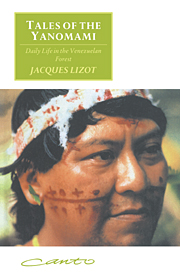Summary
It is not yet daylight. The river seems to have stayed its flow. Only a few eddies quicken the water's surface. Curls of light fog float lazily, almost motionless. Not a breath of air. Toward morning the humidity had condensed in the thick layers of foliage overhead: Now it drips down in large, noisy drops like a steady rainfall, Here and there a toucan spills out the brief notes of its monotonous song. The morning chill has become more biting; the Indians stir the fires, and showers of sparks fly up to the roof. The sun, rising above the horizon, will soon illuminate the tops of the highest trees. The great shelter of Karohi slowly comes to life: Voices seek answering voices, children weep, hammocks swing, set in motion by stirring bodies.
Without rising, men sharpen and perfect the bamboo arrowheads they had rough-cut the day before. For this morning, Turaewë, the shaman, is going to make curare: They must not run short of arrowheads. That night they were to abstain from lovemaking; during the day it will be forbidden to bathe or to eat until the curare maker has finished his work. The poison makes its demands; to be effective it imposes observance of its rules.
Now Turaewë rises. It is high time if he wants to avoid being overtaken by the rising sun. With a piece of charcoal he traces circles around his wrists and arms. Lest the noxious vapors of the curare give the small children sudden and violent diarrhea, mothers wrap a broad band of bark around their loins.
- Type
- Chapter
- Information
- Tales of the YanomamiDaily Life in the Venezuelan Forest, pp. 9 - 30Publisher: Cambridge University PressPrint publication year: 1991

